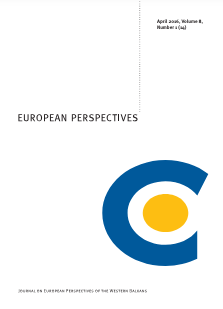The Role of Rules of Origin in European Free Trade Agreements: Evidence from Croatian Manufacturing Trade
The Role of Rules of Origin in European Free Trade Agreements: Evidence from Croatian Manufacturing Trade
Author(s): Vinko Zaninović, Katja Zajc KejžarSubject(s): Economic policy, International relations/trade, EU-Approach / EU-Accession / EU-Development
Published by: IFIMES Mednarodni inštitut za bližnjevzhodne in balkanske študije
Keywords: Stabilization and Association Agreement; CEFTA; Croatia; rules of origin; diagonal cumulation system; economic crisis; gravity model;
Summary/Abstract: This paper explores the changes in trade activity of Croatian firms involved in manufacturing that are attributable to Croatian regional economic integration processes in the 2000-2012 period. During this period, Croatia signed two important free trade agreements: the Stabilization and Association Agreement (SAA) with the European Union (EU) in 2001 and Central European Free Trade Agreement 2006 (CEFTA). We control for the role of rules of origin in regional trade agreements in view of the fact that Croatia began applying the protocols on the rules of origin which provide for diagonal cumulation (DC) between those CEFTA members involved in the Stabilization and Association Process (SAP) and the EU. The results obtained through the industry-level gravity model, using Croatian trade data in the pre-accession period indicate that SAA had a significant impact on trade creation for both Croatian export and import, while the impact of CEFTA is found to be significantly positive only if the diagonal cumulation of rules of origin is taken into account. Moreover, the results confirm that the cumulation system of rules of origin has heterogeneous impact on trade in final and intermediate goods.
Journal: International scientific journal European Perspectives
- Issue Year: 8/2016
- Issue No: 1 (14)
- Page Range: 15-39
- Page Count: 25
- Language: English

